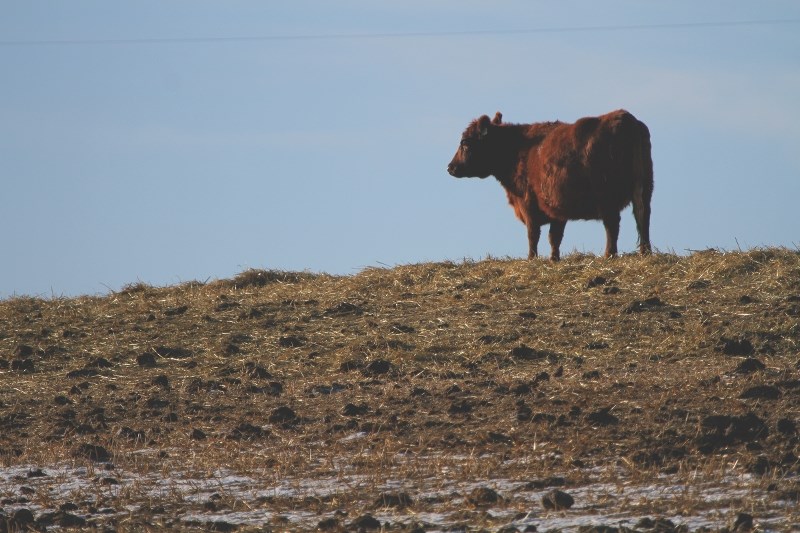For Alberta’s livestock industry, the railway lockout could create major issues regarding animal welfare.
Brodie Haugan, the chair of Alberta Beef Producers (ABP), said they use the railways to ship feed to their operations across the province.
Many large feeding operations rely on a continuous supply of feed products in order to feed their animals. Supply disruptions create risks and the main concern comes back to animal welfare.
“When you have animals that need to feed, if the feed source dries up, there's some pretty major repercussions there,” Haugan said. “It causes a lot of concern for producers.”
On the same note, Haugan is confident operations have been able to manage and mitigate their risk knowing this was coming. Despite preparations, Alberta Beef Producers are calling for a quick resolution to the rail lockout that is slated to begin on Thursday.
The Canadian National Railway (CN) and the Canadian Pacific Kansas City (CPKC) are both in negotiations with the Teamsters Canada Rail Conference union, which is expected to result in the rail lockout. The union has been demanding better wages and benefits as well as better crew scheduling for workers.
“This has a big impact on the beef sector as well as the entire agricultural sector within Alberta and within Western Canada,” Haugan said. “Our sector is highly diversified and operations are very unique, so the impact may vary between operations across the province.”
Beef operations are doing their best to ensure they have some feed inventories and extra supplies so they can buy themselves some days, and maybe even weeks, to find alternate sources, he added. While farmers and ranchers are doing a lot to protect themselves and their animals, it’s a hiccup the industry doesn’t need right now, Haugan said.
During the last rail strike, Haugan noted they were dealing with a more severe drought and feed supplies were tighter than they are now. With a slightly better summer, he noted there are more options available.
The railway system and the various industries that utilize it are extremely integrated, which means everyone will feel the impact.
“Since we see the need for rail and the delivery of feed products for our animals as an essential service, we would like to see a resolution to this issue that is a long term solution,” Haugan added, saying something is needed to restore confidence within the industry.
In anticipation of a national rail lockout on Aug. 22, the Canadian Meat Council (CMC) and the Canadian Pork Council (CPC) also called on the federal government to employ Section 107 of the Canada Labour Code to avoid the unprecedented damage to industry this service disruption will cause. Employing Section 107 would direct the Canada Industrial Relations Board (CIRB) to help parties reach an agreement under binding arbitration, and suspend the ability for either lockouts or strikes pending an agreement. They hope this could provide needed certainty to Canadian farmers and processors, as well as their customers.
Canadian Labour Minister Steven MacKinnon was set to be in Calgary this week to help facilitate negotiations.
Last summer’s Port of Vancouver strike cost $10.7 billion dollars’ worth of trade during the 35 days of strike action. CMC and the CPC said the impacts of two Class 1 railways striking at once will have even worse, unprecedented ramifications.
Some processing plants anticipate losing up to $3 million per week. The initial impact will be a delay in customer deliveries, followed by a plant shutdown within 7-10 days of strike action.
Once rail resumes it will take between two and five weeks for plants to ramp back up to normal capacity.
“The Canadian pork industry relies on the seamless operation of our transportation networks to feed our animals and deliver high-quality products to global markets,” stated René Roy, chair of CPC. “The ongoing rail and port disruptions threaten the livelihood of our producers, the welfare of our animals, and Canada's reputation as a reliable trading partner.”
Similar to the beef industry, pig feed is shipped by rail, and without a reliable and steady supply, their welfare is at risk.
CMC and CPC said the interests of workers’ rights to collective bargaining must be balanced against the public interest.



